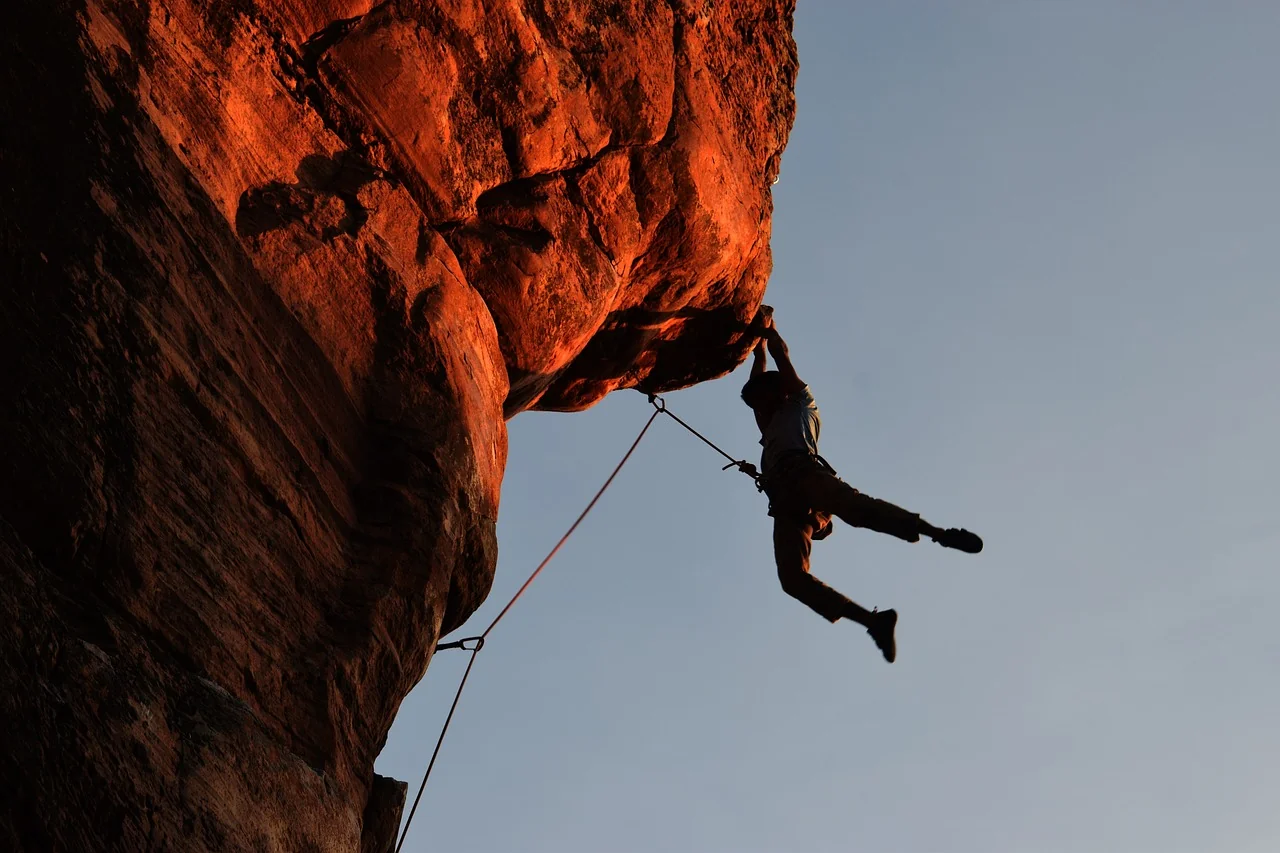Feeling overwhelmed, distracted, or just a little disconnected? You’re not alone, and the powerful solution you’re searching for might be simpler than you think. Imagine carving out a small pocket of peace each day, building a lasting habit that calms your nervous system and sharpens your focus—all without spending a dime. This is the magic of free meditation challenges.
These structured, time-bound programs are the perfect launchpad for your mindfulness journey, designed to guide you from curious beginner to confident practitioner. But with so many options, where do you even begin? This guide is your ultimate roadmap. We’ll explore the profound benefits of a consistent practice, help you choose the perfect challenge for your lifestyle, and provide a practical pre-challenge checklist to ensure you succeed. Get ready to transform your daily routine and discover a calmer, more centered you.
What Are Free Meditation Challenges and Why You Should Try One
A free meditation challenge is a structured program that guides you through a daily meditation practice for a set period, typically 7, 10, 21, or 30 days. Think of it as a boot camp for your mind, providing the framework and support you need to build a habit that can often feel elusive when attempted alone. The "free" aspect is crucial; it removes financial risk and makes the profound practice of mindfulness accessible to everyone, regardless of their budget.
These challenges are particularly effective for anyone starting their journey in meditation for beginners. They demystify the process by providing clear, daily instructions and a sense of progression. Instead of wondering what to do each time you sit down, the challenge lays out a path. You get to experience a variety of meditation techniques without the pressure of being an expert. The communal aspect, often found through accompanying online groups or shared hashtags, provides a powerful sense of accountability and shared purpose. You're not just meditating; you're part of a collective moving toward a common goal of greater peace and awareness.
The Life-Changing Benefits of a Consistent Meditation Practice
While meditating once can provide a moment of calm, the true magic unfolds with consistency. A sporadic practice is like watering a plant occasionally; it might survive, but it won't thrive. A daily meditation practice, cultivated through a challenge, is like providing consistent sunlight and water. The cumulative effects compound, leading to tangible transformations in your mental, emotional, and even physical well-being.
The science is clear, and the anecdotal evidence is overwhelming. Committing to a challenge unlocks a cascade of benefits.
Reduced Stress and Anxiety: This is often the primary reason people seek out meditation. Regular practice dials down the body's production of stress hormones like cortisol and activates the parasympathetic nervous system, which is responsible for "rest and digest." This helps you respond to life's pressures with more grace and less reactivity.
Improved Focus and Concentration: Our modern world is a minefield of distractions. Meditation is a workout for your attention muscle. By repeatedly guiding your focus back to your breath or a mantra, you strengthen your brain's ability to concentrate, both during your practice and throughout your day. If you're pressed for time, a free 5 minute meditation can be a powerful tool to reset your focus.
Enhanced Emotional Regulation: A consistent mindfulness practice creates a crucial gap between a triggering event and your reaction. It helps you observe your emotions—anger, sadness, frustration—without being completely swept away by them. You learn that you are not your feelings; you are the awareness behind them.
Better Sleep Quality: Racing thoughts are a primary culprit behind insomnia. Meditation quietens the mind and relaxes the body, making it easier to fall asleep and stay asleep. Techniques like a body scan are particularly effective for preparing for a restful night. A dedicated free guided meditation for stress & sleep can be incredibly helpful for this.
Increased Self-Awareness: This is perhaps the most profound benefit. As you practice observing your thoughts without judgment, you begin to understand your own mental patterns, habits, and biases. This self-knowledge is the foundation for all personal growth and healthier relationships.
How to Choose the Perfect Free Meditation Challenge for You
With countless free challenges available online, selecting the right one can feel almost as daunting as starting the practice itself. The key is to align the challenge with your personal goals, lifestyle, and experience level. A perfect fit will feel supportive, not stressful. Consider these factors to find your ideal match.
Duration: Finding Your Sweet Spot
The length of the challenge is a major factor in both commitment and success.
- 7-Day Challenge: Ideal for absolute beginners or those with a busy schedule. It’s a low-stakes way to "try on" meditation and build initial momentum. The short timeframe feels manageable and can provide a convincing glimpse of the benefits.
- 21-Day Challenge: Often cited as the time it takes to form a new habit, a three-week challenge provides more depth. It allows you to move past the initial novelty and start integrating the practice more solidly into your life.
- 30-Day Challenge: This is the gold standard for creating a lasting, transformative habit. A month-long commitment ensures you'll likely encounter and work through various mental states and external disruptions, building real resilience.
Style and Technique
Not all meditation is the same. Exploring different styles helps you discover what resonates with you.
- Guided Meditation: The best option for most beginners. A teacher's voice provides instructions, helping to anchor your attention and offering valuable insights. This is a cornerstone of most introductory challenges.
- Mindfulness: This involves paying non-judgmental attention to the present moment, often starting with the breath. It's a foundational technique for many other styles and is excellent as a meditation to clear the mind.
- Loving-Kindness (Metta): This practice focuses on cultivating feelings of compassion and love, first for yourself and then radiating out to others. It's powerful for softening a critical inner voice and improving relationships. This is a core component of many feel good meditation practices.
- Body Scan: This involves systematically bringing your awareness to different parts of your body, releasing tension and grounding yourself in physical sensations. It's excellent for stress relief and sleep.
Platform and Teacher
Where you find your challenge matters. Look for reputable sources with positive reviews.
- Apps: Insight Timer has a vast library of free challenges from thousands of teachers. Other apps like Healthy Minds Program and UCLA Mindful also offer completely free, structured programs.
- YouTube: A treasure trove of free challenges from certified instructors and mindfulness experts. You can often get a feel for a teacher's style by watching a sample video.
- Websites: Many mindfulness coaches and organizations host free challenges through their websites, often accompanied by email support or community forums.
Your Pre-Challenge Checklist: Setting Yourself Up for Success
A little preparation can make the difference between sticking with your challenge and dropping off after day three. This checklist is designed to set you up for a smooth and sustainable experience, directly addressing the common hurdle of sticking to a meditation practice.
Set a Clear Intention: Before you begin, ask yourself: "Why am I doing this?" Your intention could be "to feel less anxious," "to be more patient with my kids," or simply "to explore my own mind." Write it down and return to it if your motivation wanes.
Schedule Your Practice: Don't leave your session to chance. Decide on a specific time and tie it to an existing habit. "I will meditate right after I brush my teeth in the morning," or "I will do my session right before I eat lunch." Consistency in timing builds a stronger habit.
Create a Dedicated Space: You don't need a special room. Designate a quiet corner with a comfortable cushion or chair. This physical space becomes a psychological trigger, signaling to your brain that it's time to settle down.
Gather Your Tools: Have everything you need ready to go. This includes headphones for guided meditation, a journal for noting down post-session reflections, and a timer if you're not using a guided session. Removing这些小障碍 makes it easier to show up.
Adopt a Beginner's Mind: Let go of expectations of a "perfect" meditation. Some sessions will feel calm and clear; others will feel busy and frustrating. Both are valid and beneficial. Your only job is to show up with an attitude of curiosity, not judgment.
A Sample 7-Day Free Meditation Challenge to Start With
If you're ready to begin but don't know where to look, this sample 7-day plan is your perfect starting point. It incorporates foundational meditation techniques to give you a well-rounded introduction. Each session can be as short as 5-10 minutes.
Day 1: Foundational Breath Awareness. Sit comfortably and simply focus your attention on the physical sensation of your breath entering and leaving your body. When your mind wanders, gently guide it back. No force, just gentle redirection.
Day 2: Body Scan for Grounding. Bring your awareness to the tips of your toes, noticing any sensations. Slowly move your attention up through your feet, legs, torso, arms, and all the way to the top of your head. The goal is to connect with and relax your body.
Day 3: Mindfulness of Sounds. Shift your anchor from the breath to the sounds around you. Notice the sounds in the room, outside, and the silence between sounds. Listen without labeling or judging them as good or bad.
Day 4: Loving-Kindness for Self. Repeat a series of phrases silently to yourself, such as "May I be happy. May I be healthy. May I be safe. May I live with ease." Feel the intention behind the words, cultivating compassion for yourself.
Day 5: Loving-Kindness for Others. Bring to mind a loved one. Extend the same phrases to them: "May you be happy..." Then, try bringing to mind a neutral person, like a checkout clerk, and wish them well.
Day 6: Noting Thoughts and Feelings. As you sit, notice when a thought or feeling arises. Gently label it—"thinking," "worrying," "planning," "aching"—and then return to your breath. This practice helps you see thoughts as passing events, not absolute truths.
Day 7: Integrating Silence. Try a short period of unguided meditation. Sit for 5 minutes, using the technique from Day 1 (breath awareness) or simply resting in open awareness, noticing whatever arises in your experience without any specific focus.
Remember, the goal is not to empty your mind, but to become more familiar with its workings. By completing this week, you will have laid a powerful foundation for a lifelong mindfulness practice. You have everything you need to begin. Your journey to a calmer, more focused, and resilient self starts with a single, conscious breath.
Embarking on a free meditation challenge is a powerful and accessible step toward greater mental clarity and emotional resilience. As we have explored, these structured programs offer the guidance, community, and consistency needed to build a sustainable practice, demystifying meditation for beginners and reinvigorating the routines of seasoned practitioners. The key takeaway is that the profound benefits of meditation—from reduced stress to improved focus—are within everyone's reach, requiring only a commitment to show up for yourself each day. These challenges dismantle the barriers of cost and complexity, proving that you do not need a perfect environment or endless time to cultivate inner peace. Let this be your invitation to pause, breathe, and explore the transformative potential that lies within a simple, daily practice. Your journey toward a more centered and present life is just a few breaths away; take that first step today and discover the calm waiting for you.


